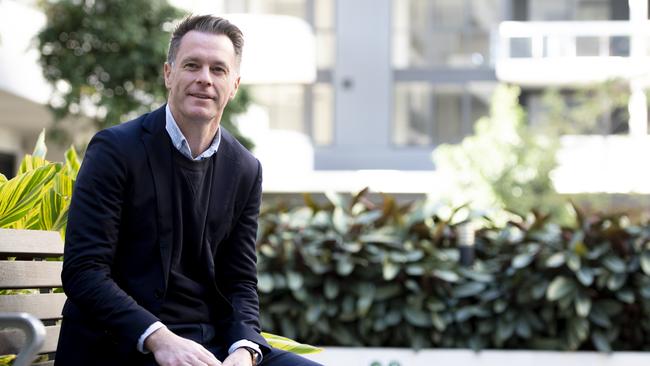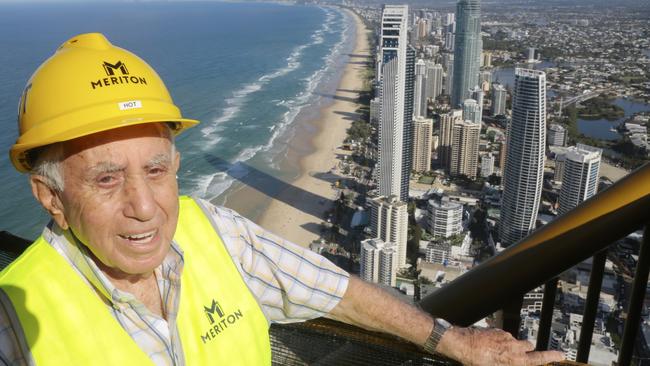
In Melbourne, large overseas superannuation and other international institutions are contracting to erect large “build for rent” developments, which will change the nature of apartment development there and later Australia.
Sydney was rejected by the internationals because its land was too expensive and the state government and local council bureaucrats, working at boosting development costs, were too powerful.
But in a shock Sydney change, new NSW premier Chris Minns is canvassing stripping the costly restrictions and rules that plague Sydney apartment buildings in exchange for owners offering a 30 per cent reduction in rents for 15 years on the “low cost” developments.
It’s a radical plan that would see thousands of apartments built if the cost reductions are large enough to be make it economic.
Even harder to overcome will be the uproar created by the bureaucrats whose jobs depend on the restrictions.
The Melbourne developments are happening, while the Sydney plan is it the early stages of negotiation with Australia’s biggest apartment developer and owner, Harry Triguboff and his Meriton group.

I will start with Melbourne.
Australian superannuation funds are major property investors but have been in reluctant to join their overseas counterparts in developing “build for rent” apartment complexes along the lines popular in Europe and North America.
But the recent rent rises and the Australian housing shortages have caused a number of overseas institutions to transport their “build for rent” expertise down under.
In Melbourne, they found a series of sites where permission had been obtained to build conventional apartments where developers would sell around half the apartments “off the plan” and then the banks would fund the project with the pre-sales as security.
Projects structured this way were no longer attractive to apartment buyers given the rise in building costs and the uncertainties of construction, plus the doubtful end value of the units. And the banks weren't interested.
The overseas institutions purchased the dormant land in popular inner Melbourne suburban regions and converted the development permission that had been obtained into “build for rent” communities that will include family areas with swimming pools etc.

The one, two and three-bedroom apartments will all be rented, and the returns look good. Banks are lending to major overseas institutions, so are happy to provide half the funds.
Australia’s superannuation funds are battling with their exposure to office blocks and retail centres and are reluctant to launch into a new sector at this time, but if the overseas institutions are successful, Australians will almost certainly follow.
For many years, Sydney has been an international joke when it comes to apartments.
The land is made too expensive by the regulatory and approval nightmares that rank as some of the worst in the world.
Giant Chinese developers came to Sydney with high hopes, but could not make it work and retreated, incurring heavy losses.
Meriton has made it work because it has a large portfolio of apartments and its own building operation, but has now slowed developments to a level that enables managing director Triguboff to keep his building workforce employed.
Triguboff still has a large amount of land being blocked by the bureaucrats and has stopped buying new Sydney land – it’s too hard.
The Gold Coast is much easier.

But if the state government and local council rules and restrictions could be made workable, Meriton has large landholdings that could be converted to apartments at a fast pace.
Nevertheless, Meriton was stunned when a theoretical proposal was canvassed to streamline the approval, design and building process in exchange for 30 per cent reduction in market rents that would last for 15 years. Thereafter, market rents would be charged.
Those sorts of radical proposals sound good in theory, but are very difficult to arrange. For example, how would the rent be calculated; would there be reduction in crippling stamp duties plus other taxes and local government charges?
Would the NSW archaic requirement to dig a large hole for parking be replaced with parking on the lower floors?
Would approvals be given within six months instead of two years; Would the objection process be streamlined?
Would at least one garage per unit be allowed? And those restrictions are just the start of the Sydney apartment development bureaucratic nightmare.
The other aspect of the apartment development approval process in both Sydney and Melbourne is the difficult issue of separating affordable apartments for people like teachers, nurses, police and other employed people who are priced out of the market from those with virtually no employment income with deep social problems.
Back in the 1950s, Melbourne erected large apartment towers which were used by new arrivals as temporary accommodation. But now there is a long waiting list and once people obtain the accommodation in the towers they do not want to give it up.
Sometimes, but not always, the community created by having low income people in one place can result in unpleasant living. The towers become ghettos.
No property developer wants a ghetto in the middle of a project.
It is just possible that much of the large government handouts being given to states will end up being dominated by ghetto developments.
What the politicians in Canberra don’t realise is that private capital can be made to work in Melbourne and Sydney.







While the federal government is engaged in a classic Canberra money throwing exercise in trying to overcome the housing shortage, two entirely different but dramatic developments are taking place in Melbourne and Sydney.